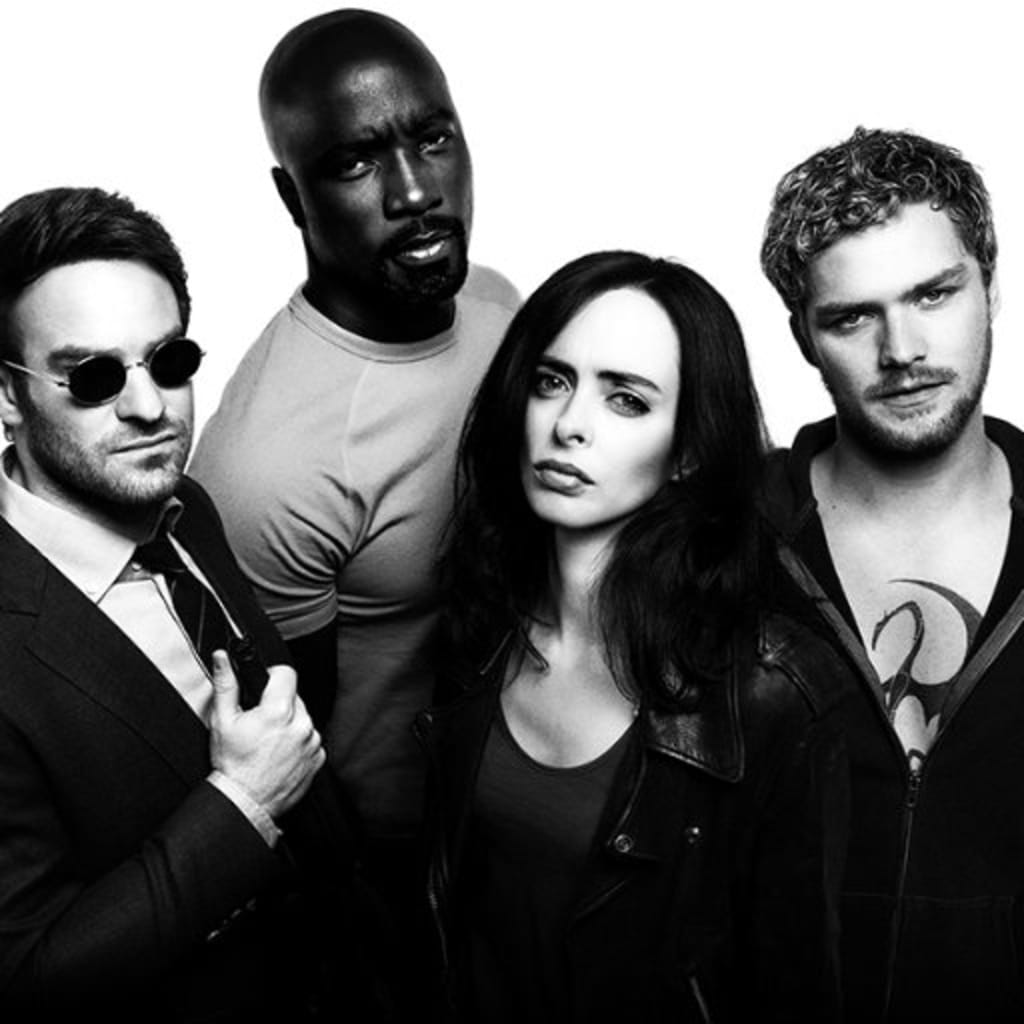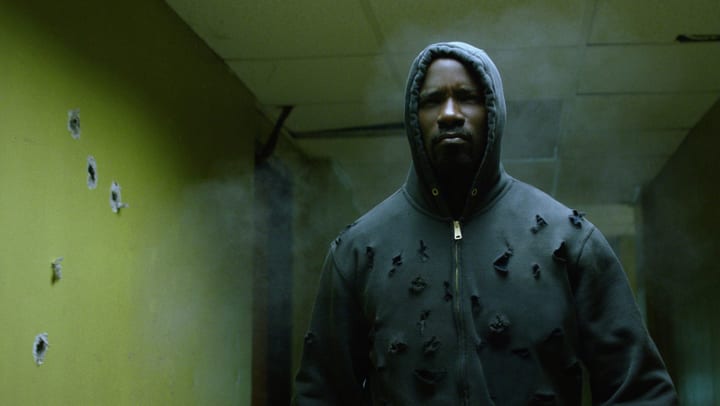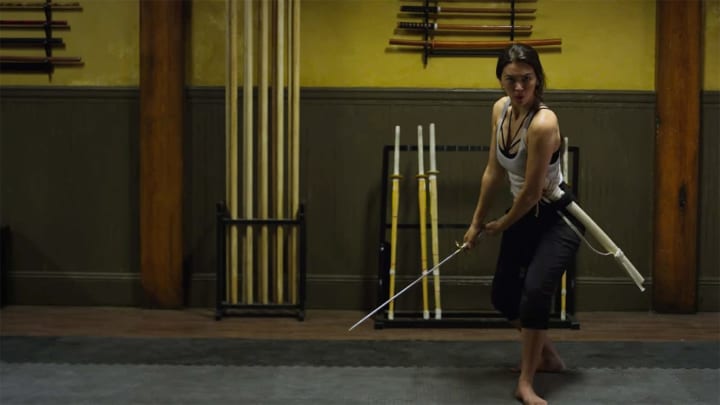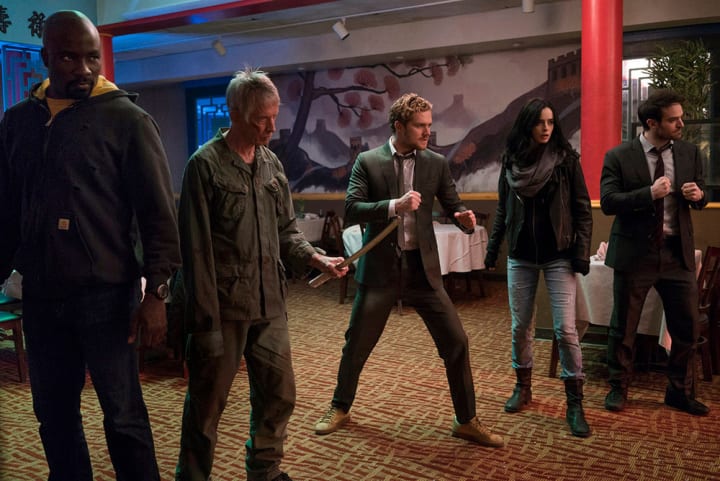Why the Defenders Need Iron Fist
A weak character strengthens a diverse cast.


Luke Cage represents the struggles of being black in Western society, pulling no punches in its brutal imagery. Daredevil tackles the bridge between disability and ability, implementing both in equal measure. Jessica Jones starts to bring a voice to feminism and condemns rape culture.
So why, I wondered, do we need Iron Fist?
Iron Fist, at a glance, is problematic at best. At the ground level, Danny Rand (Finn Jones) perfectly personifies the classic tale of a white man who enters a different culture and performs said culture better. He enters K'un-Lun, passes a couple tests, and takes on the role of the Iron Fist and all the White Saviour stereotypes such an achievement entails. His wealth, gender, and race give him power far greater than that of the Iron Fist, but all of the latter privileges he scorns and takes for granted. The characters of colour in the series are underrepresented and often stereotyped; most blatantly, Colleen Wing, played by Jessica Henwick, is largely undermined as a mere love interest despite her compelling backstory and incredible skill.

Danny Rand is a definite image for white privilege in the MCU. The innocently naive way in which he attempts to deal with the Hand, in the world of business and in legitimate battle, showcases the absolute uselessness of his character. Whenever he explains his mystical role and powers to any of the other characters, he is met with the same reaction I had as a viewer of Iron Fist: "hahaha, are you serious?"
I am, perhaps, paraphrasing.
Iron Fist did, however, help bridge the gap between the different series by providing viewers with insight into the Hand, the organization with whom all the other Defenders have interacted and/or interfered. Neither this valuable background information nor the incredible performances by Henwick and Rosario Dawson could entirely save the show from its focus on the Meechums, Wall Street-esque shady business, or Danny Rand's White Saviour shenanigans.
But in Defenders, the weakness of the Iron Fist becomes justified. Optimistic and somewhat innocent, he is the first to suggest a team-up. The other Defenders, as the legitimate, long-suffering adults in the room, of course, think this is a terrible idea, and find Danny's abilities and attitudes just as laughable than I do, if not more. Strength in numbers is a strategy that these series have struggled with time and time again, and almost every character has come to the determination that they work best alone in order to protect those they care about.
Danny, though often a lone-wolf himself, somehow still doesn't get it. He is convinced they are stronger together, and that they need each other in order to take down the Hand. He preaches against division and seems keen on teamwork.

Ironically, but not surprisingly, he drops this stance immediately whenever things don't go his way. Danny wants to work as a team only if he calls the shots. Fortunately, his childish reactions strengthen the determination, rationality, and unity of the other three.
Though I am only halfway through the series at the moment, I find it incredibly interesting to watch these interpersonal interactions play out. The Defenders operate not just as individuals, but as a touchstone for the groups they represent. On a symbolic level, Danny works as a continuation of systemic oppression, and at this point in the series, he unifies the others just as much as the Hand itself. As much as I want to shriek whenever Danny says something stupid or acts entitled, I can see that Danny's aforementioned entitlement acts as a point of comparison for the others. His lack of empathy and pure selfishness motivates the others to be better, and though his privileged whiteness is not an element that we need to see more of in the media, it serves a purpose.
Diversity in the media isn't about excluding the standard systems of representation, rather about using narratives to undermine the expectations we have about racial differences and "normal" power structures. However much Iron Fist was weakened by its titular character, Danny Rand serves a powerful purpose: to elevate the strength of his fellow Defenders through the sweet, sweet juxtaposition of his own incompetence.
About the Creator
Hannah Anderson
Hannah Anderson is a fourth year Bachelor of Arts in Honours English, a research assistant, varsity rower, and professional Netflix binger. She has a lot of opinions.






Comments
There are no comments for this story
Be the first to respond and start the conversation.